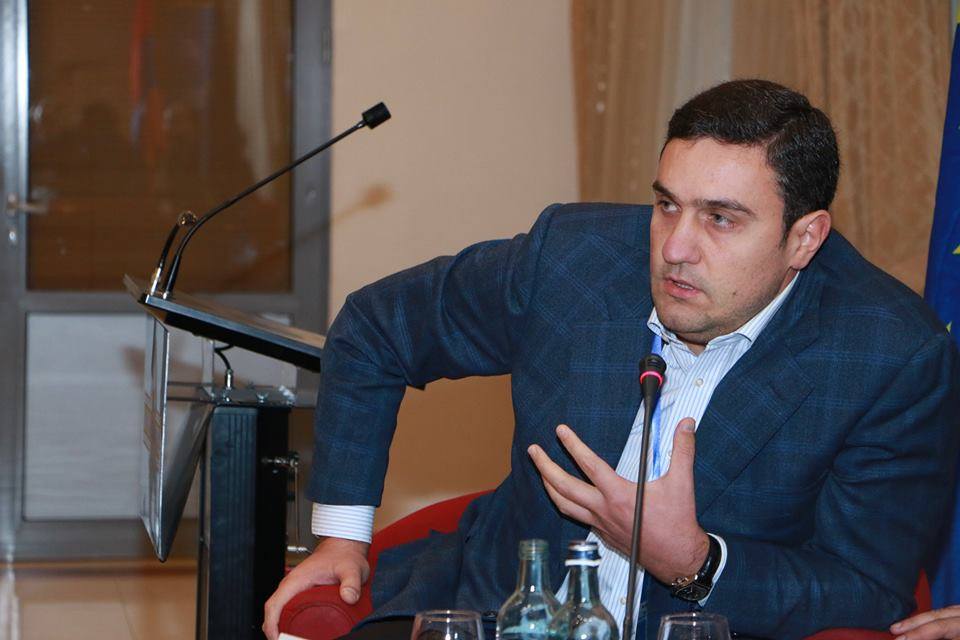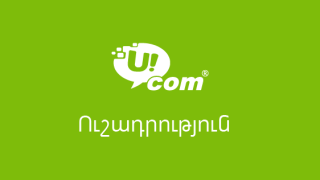The authorities should be compelled to go to real, structural and regime changes, by raising the degree of social pressure: A.Ghazinyan

Interview with Artur Ghazinyan, PhD in Law, Associate Professor, Director of the Centre for European Studies (CES),Project Director of the “Regional Master’s Programme in Human Rights and Democratization.”
Mr. Ghazinyan, taking of the police patrol regiment by “Sasna Tsrer” armed group on July 17 essentially strained Armenia’s domestic political condition, settlement of which hasn’t been shaped yet. How will you assess the existent situation?
Armenia’s authorities and the Armenian society currently face challenges, which are unprecedented for the newly independent Armenia, both in the fields of foreign and domestic policies. After the police patrol regiment was taken by “Sasna Tsrer” gunmen, a situation was established in Armenia, exits to overcome which are strictly restricted, in particular, on account of decisiveness showed by the group members and readiness to go till the end, and from the side of the authorities—absence of any reasonable proposal for the crisis settlement.
Social support and sympathy, which the group members have, considerably complicates the situation for the authorities. The group introduced obvious political claims, i.e. release of the political prisoners, resignation of RA president and formation of the government of people’s trust. In fact, it turns out that a group of former freedom fighters, some of them have their big and undeniable contribution in Artsakh war, are gifted with considerable authority in creation of a newly established independent statehood, and urge the leadership to go to radical political reforms through the force of the weapon.
Real motivation was existent to go to compromises by the authorities prior to the release of the hostages, i.e. life and health of the hostages, however, the situation radically changed after the release of the hostages by the gunmen. By what do the group members threaten the authorities in case they withdraw from their implementation? What can they do, being threatened of which the authorities will go to implementation of claims. Judging from the biography of the group leaders I can’t believe that they may be a real threat to the society, and the authorities are rather far from them, feeling some threat from the group members. It turns out that the only thing, which may make the authorities agree on the claims by the group members, it’s wide social support, existent discontent mobilization towards the authorities inside the society, and possibilities to reach them currently are rather restricted due to the absence of a charismatic leader and a political movement, who might lead the movement and provide political agenda.
In your opinion, what the reflection of the authorities should be? What should they do under the existent situation?
I should confess that the authorities are in a rather complicated situation. Political resource and possibility of the authorities to apply force is rather restricted, and it simply doesn’t have the right to fulfill claims of the armed group. Let me explain why. RA Constitution clearly regulates order, conditions, terms and methods of development and changes of authoritative bodies, including 30 gunmen, as subject submitting such a claim, aren’t enshrined in it.
In case of maximal wish the authorities, even upon the demand of three dozens of gunmen, can’t go to extraordinary electoral processes, as first and foremost, it’ll destroy the grounds of statehood and legal state, and secondly, it’ll become a precedent to change the regime in the country through those means in the future, as a result of which Latin American syndrome will dominate in Armenia. This is a serious threat for the Constitutional order. The authorities need to take this circumstance into consideration during the negotiations with the group.
On the other hand, it should be stated, if against the background of this development internal political and societal processes will be initiated in Armenia, as a result of which claim for extraordinary elections will be developed, then the authorities may already go to compromises up to extraordinary parliamentary elections, however, already not upon the demand of “Sasna Tsrer” group, but for the reasoning of settling internal political and social crisis, as well as reconfirming stability inside the country. These should be differentiated to exclude such practice in the future. One point is obvious: the authorities should overcome the crisis with the help of the people and direct participation.
Armenia’s president, reflecting to the existent situation, stated, that lessons should be learned, and seemingly, promised to touch upon the reasons later. In your opinion, what lessons should the authorities learn and which were the reasons, which led to this situation?
Under the developed regime, lessons learned and reasons for the situation I may imagine, may differ from the imagination of the authorities, and this, in my opinion, is natural, as I support Western state model and regime, meanwhile present-day authorities, like all those functioning since 1991, acted by the logic and rules of neo-Soviet regime.
Firstly, I’d like to touch upon the reasons. On account of Armenia’s economic and social situation, as well as injustice, which became a lifestyle and existence of triple or even quadruple standards, level of corruption and bad governance, such a shock might have been anticipated. However, under normal conditions this should have been in the Republic Square, organized by the political opposition, without arms and hostages, clear political agenda and consecutiveness of activities and predictable process.
However, under the absence of institutional opposition or generally, inexistence of a political system it occurred through desperate patriots, in some sense, also romantic, people with rude violation of a range of norms of criminal legislation, as a result of which one police colonel was killed, dozens of citizens suffered injuries—both civilians and policemen. One should be blind not to notice that discontent inside the society is widely spread: the unemployed and workers, the opposition and even people among the authorities, the needy, the rich. Extreme discontent has risen among the middle class—businessmen, scientists, civic society and the youth. This should have blasted at any moment, through some means, and which occurred.
As for lessons learned, it should be stated that it’s not for the first time, that the authorities have touched upon learning lessons, however, real steps are needed, which, they basically don’t implement. This, maybe, is conditioned by neutral and passive position of wider social layers, as well as, by the absence of social agenda, however, currently the situation is different, and seemingly, a social agenda is being developed, which may urge the authorities to go to internal radical changes.
Under normal political system the opposition assumes the role of a leader of those changes, however, our political system differs by the point, that besides the authorities, no any other political power is not able to implement those changes. I mention this with regret and I’d prefer to be mistaken, however the reality is this. The reason is the existent and day-by-day deepening total distrust towards whole political system, as a result of which apathy is developing. This is a serious threat for the state, as the numb society is not able to confront neither internal, nor external challenges.
Under the existent situation the authorities should be urged to go to real, constructive and regime changes, by rising the degree of social pressure.
Do you believe that the authorities intend or may generally go to the changes mentioned by you?
With its current human resource, toolset and behavior, of course, they can’t do that. Intention is a different thing, the situation obliges it, and nobody asks the desire of the authorities. I’m sure Armenia’s ruling elite also realize it, especially, under the influence of external factors, when under the absence of inner resistance a favorable condition is established for external actors to implement their geo-political and regional interests on account of Armenia.
Under the existent situation burden of the authorities is becoming heavier. Firstly, they should convince their own team, that they wouldn’t act as they used to, the overwhelming majority should leave the Government and the Parliament, oligarchs won’t make use of state patronage, and there won’t be quotation of economy and distribution of monopolies any more. On the other hand, I think it’s principally necessary to amend the methodology of decision-making and ideology of the leading political power, by providing competition inside the political party, involving new, young and progressive cadres.
These are the steps to be implemented to restore society-leadership violated balance. And that balance has been violated long ago, the authorities are yet in the methodology and logic of late 20th century, meanwhile the society is already entering the second decade of the 21st century, with new ideas, values, imagination and views peculiar to the period. Modernization of the authorities is inevitable, and surely, it would be preferable that the authorities had realized it prior to this crisis.
What role do external players have and what influence will this situation have on NK negotiations, which has been widely discussed recently?
I don’t observe direct role of external actors in these developments, however, this doesn’t mean that they won’t make use of the situation and initiate some processes to realize their interests. Traditionally any internal political shaking in Armenia is automatically identified with Russia, on account of power and influence of that state in Armenia. However, this, maybe is the first case, when Russia didn’t need such developments on account of leading political interest in Artsakh issue and the unhidden intention to accelerate the settlement process.
With taking of the police patrol regiment by “Sasna Tsrer” group a force majeure situation has been established in Armenia, which gives odds, regarding time, by the Western logic to upgrade political and social system to restore sovereignty and confront external pressures, as well as develop new strategy for NK conflict settlement and appear with new proposal inherent to the period and the situation. In short, importance of external actors should be reached to a minimum, focusing on internal issues, and solving them independently without supporting any external power.
By Araks Martirosyan

























